Top 20 Best Foods For Your Sick Toddler
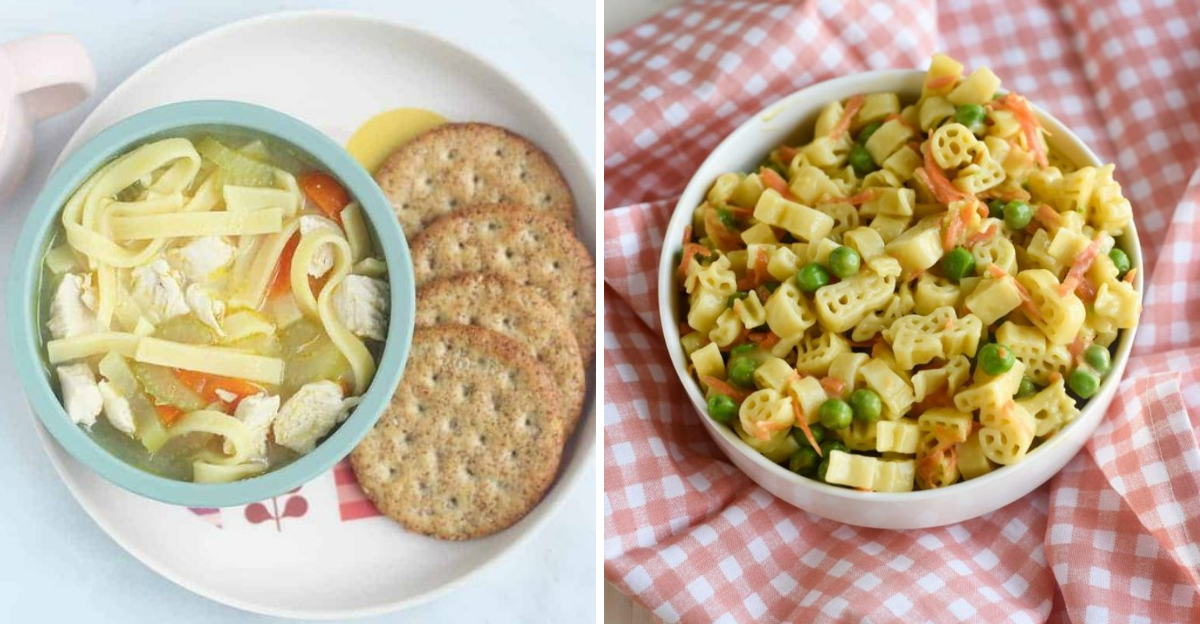
When your little one isn’t feeling well, choosing the right food can be crucial for their comfort and recovery. The foods you offer should be gentle, nutritious, and easy to digest, helping to support their immune system while soothing their sensitive tummies. Here, we’ve curated a list of the best foods that offer both nourishment and comfort for your sick toddler, ensuring they receive the care and nutrients they need.
1. Bananas
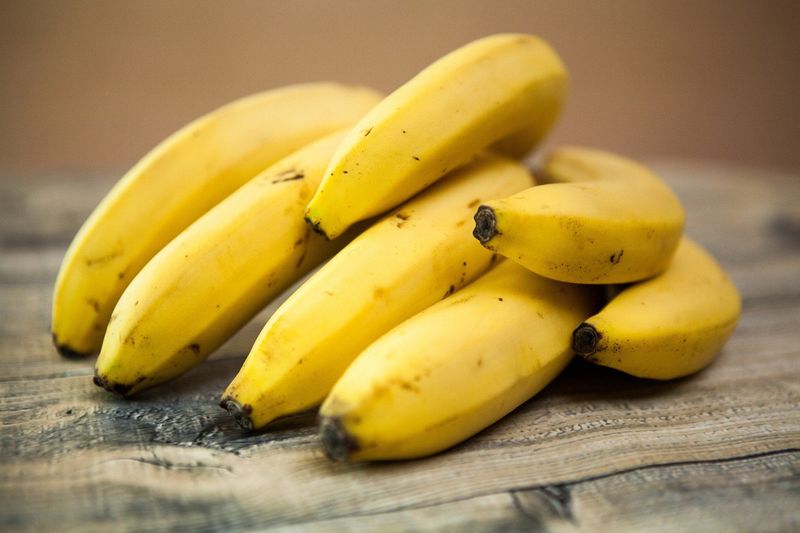
Imagine a food that’s like a gentle hug for the tummy—bananas provide just that. Their soft, mushy texture makes them easy for toddlers to eat, and they’re packed with potassium, which helps maintain proper hydration and normal muscle function. Bananas are naturally sweet, making them an appealing choice for little ones who might be picky eaters. They can be sliced, mashed, or even served whole for playful snacking. Plus, they pair beautifully with other foods like yogurt or cereal for added nutrition. Did you know bananas can also help soothe an upset stomach?
2. Applesauce (Unsweetened)
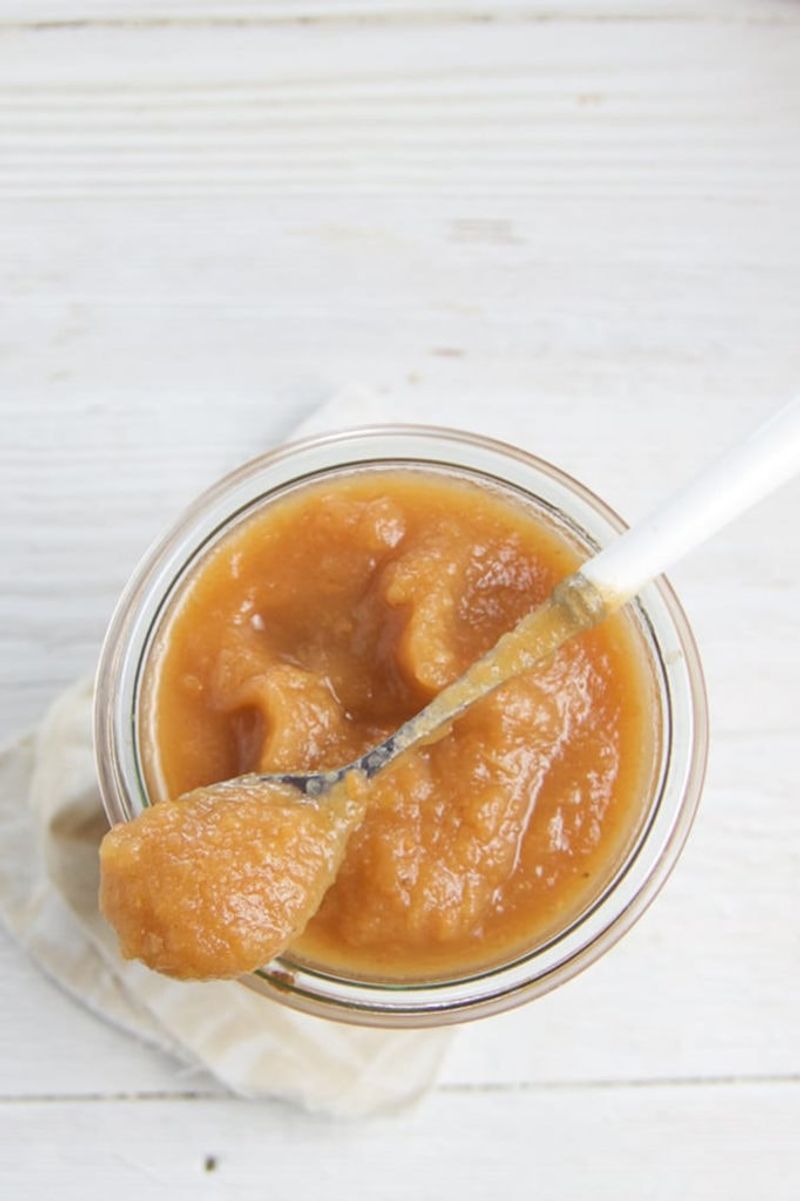
Sweet, tangy, and oh-so-easy to eat, applesauce is a favorite among young children. Its smooth consistency makes it a great option for toddlers who may have difficulty chewing or swallowing solid foods. Rich in fiber and vitamin C, applesauce not only aids digestion but also supports the immune system. If your little one is feeling under the weather, unsweetened applesauce offers a gentle, hydrating option that can be served alone or mixed with other foods like oatmeal. A fun fact: applesauce has been used for centuries as a simple, digestible food for the convalescent.
3. White Rice
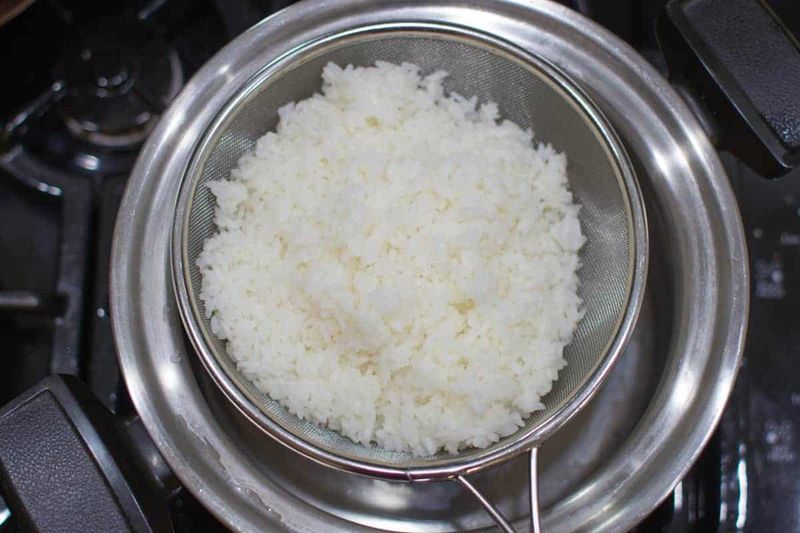
White rice is like a blank canvas, offering a mild, soothing base that’s easy on sensitive stomachs. As a simple carbohydrate, it provides energy without overwhelming the digestive system, making it an ideal choice for sick toddlers. Its versatility allows it to be paired with lightly seasoned broth or boiled chicken for additional nourishment. White rice is often recommended by pediatricians for its gentle nature and ability to firm up loose stools. Did you know white rice is a staple comfort food in many cultures, often used to restore strength and vitality during illness?
4. Plain Toast or Crackers
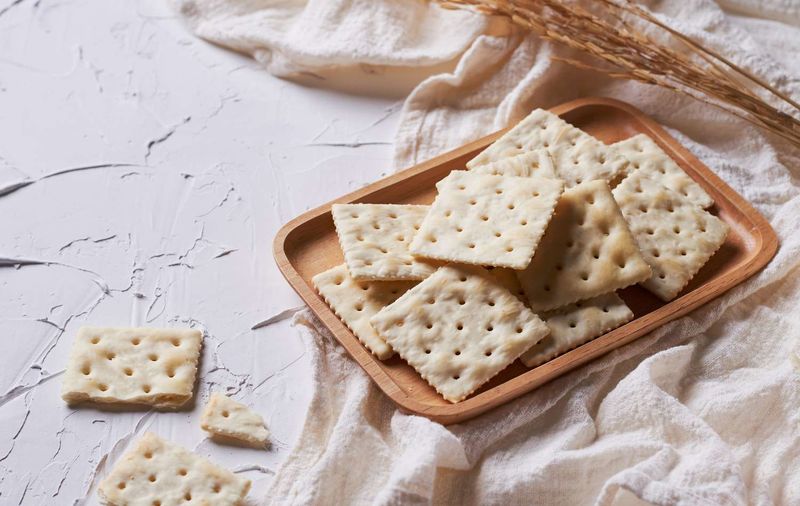
Crisp, dry, and wonderfully simple, plain toast and crackers offer a satisfying crunch that can be comforting to ailing toddlers. They serve as a gentle introduction to solid foods after a bout of illness, providing carbohydrates that are easy to digest. Toast can be lightly buttered or topped with a thin spread of jam for a bit of flavor. Crackers, on the other hand, can be paired with mild soups or eaten alone. Their bland taste and crunchy texture make them a staple during recovery. Fun fact: plain toast is often used in the BRAT diet for gastrointestinal distress!
5. Plain Mashed Potatoes
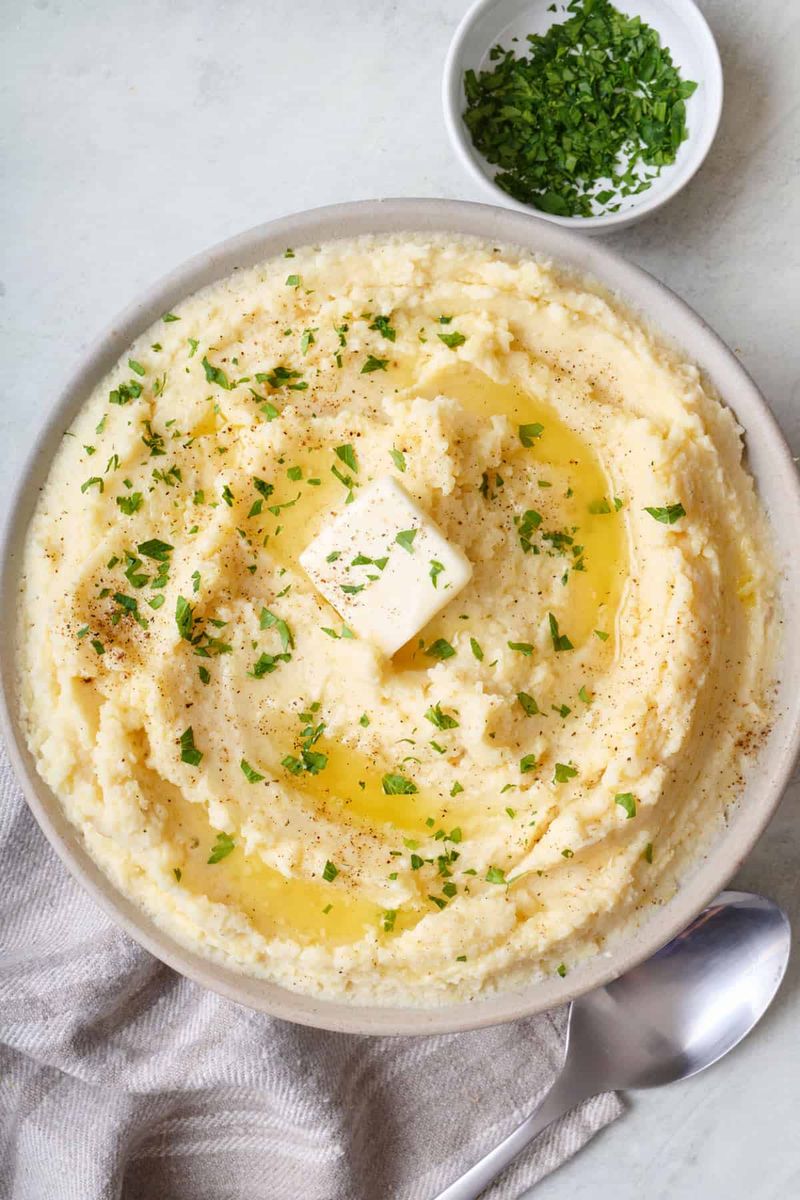
There’s something incredibly comforting about a bowl of mashed potatoes, isn’t there? For toddlers feeling unwell, plain mashed potatoes are a soft, easy-to-digest option that provides energy through carbohydrates. They can be made with water or broth instead of milk for those with dairy sensitivities. Mashed potatoes are smooth and creamy, offering a familiar taste that might encourage a reluctant eater to take a few bites. This humble dish also pairs well with other simple foods like boiled vegetables or shredded chicken. Did you know? Potatoes are naturally rich in vitamin C and potassium.
6. Warm Chicken Broth
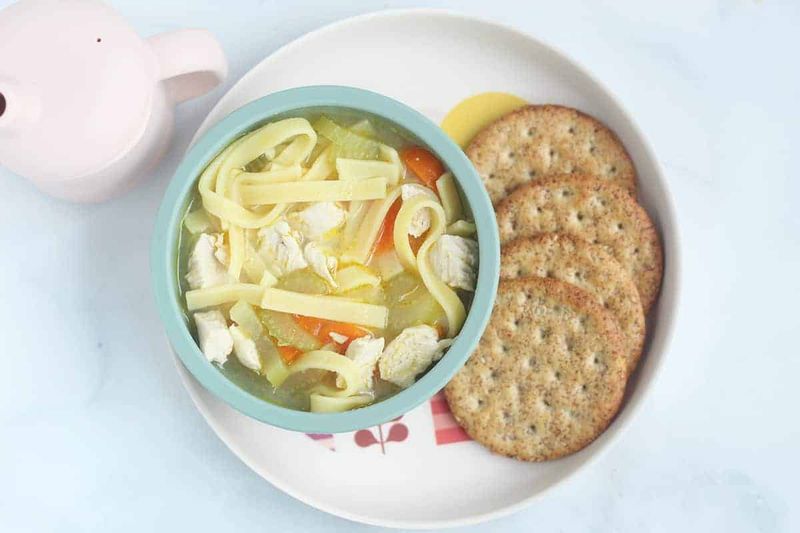
Warm chicken broth is like a soothing embrace in liquid form. It’s hydrating and comforting, providing essential electrolytes that help maintain balance during recovery. The gentle, savory flavor is usually well-accepted by toddlers, even when they’re not feeling their best. Chicken broth can be enjoyed on its own or enhanced with tiny noodles or rice for added sustenance. Known for its healing properties, it’s a staple in many households for soothing colds and other minor ailments. Fun fact: chicken soup, often made from this broth, is affectionately called “Jewish penicillin” for its purported health benefits.
7. Oatmeal (Made with Water or Milk)
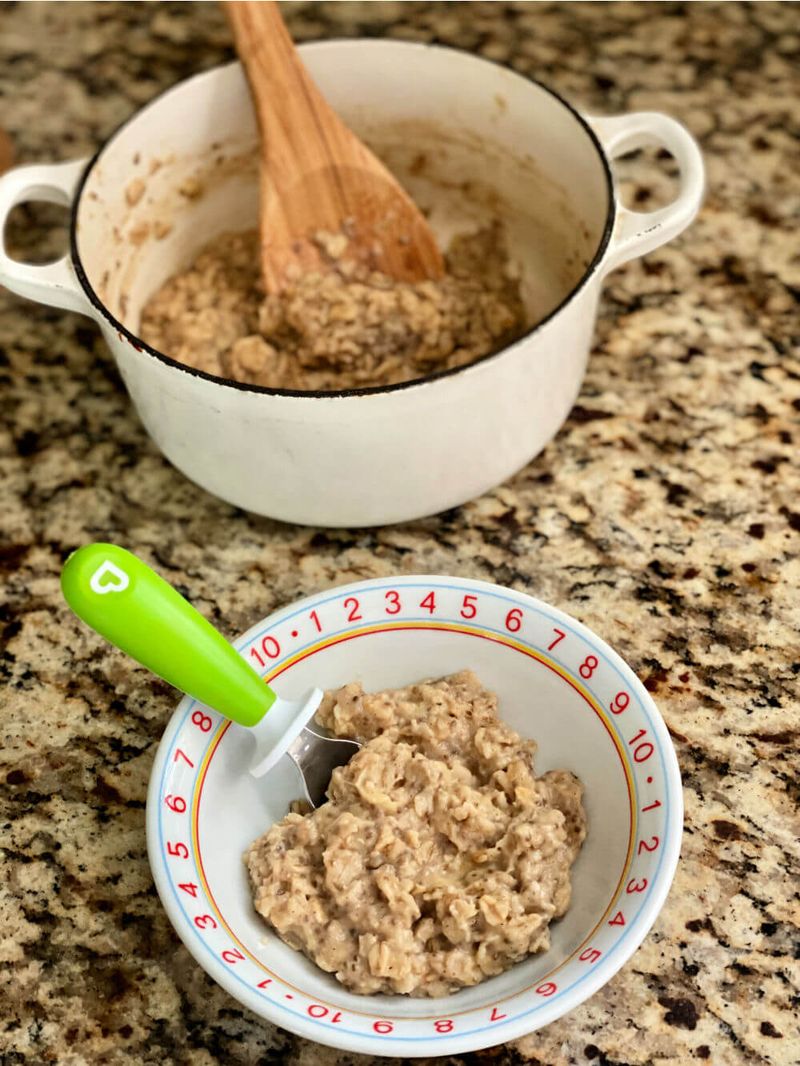
A steaming bowl of oatmeal offers comfort and nourishment, making it an excellent food choice for sick toddlers. Its soft texture is easy to swallow, while the fiber content supports healthy digestion. Oatmeal can be prepared with water or milk, depending on dietary needs, and enriched with mashed fruits like banana or applesauce for added nutrients. This versatile grain provides a warm, soothing meal that can be tailored to your child’s preferences. Did you know oatmeal has been a dietary staple for centuries, believed to provide strength and stamina during illness and recovery?
8. Scrambled Eggs
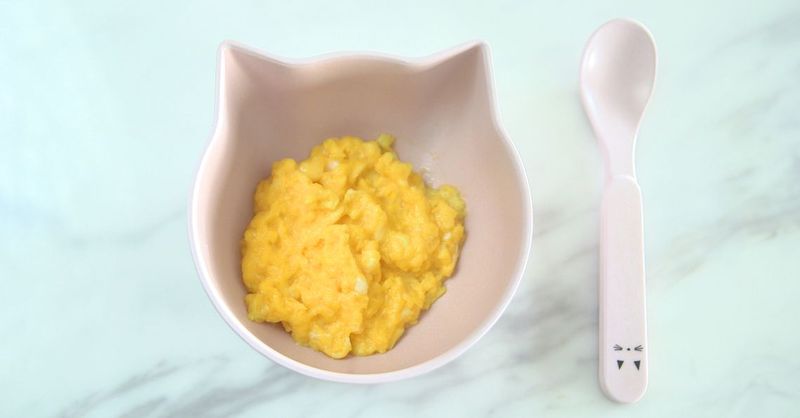
Soft, creamy, and packed with protein, scrambled eggs are a gentle way to reintroduce protein into your toddler’s diet. They’re easy to prepare and can be made with or without milk, according to your child’s tolerance. Scrambled eggs provide essential amino acids and nutrients like choline, which supports brain development. Their mild flavor and tender texture make them a favorite among young children. Whether served plain or with a sprinkle of cheese, scrambled eggs are both delicious and nutritious. Fun fact: eggs are one of the most complete sources of protein available in food.
9. Steamed Carrots or Sweet Potatoes
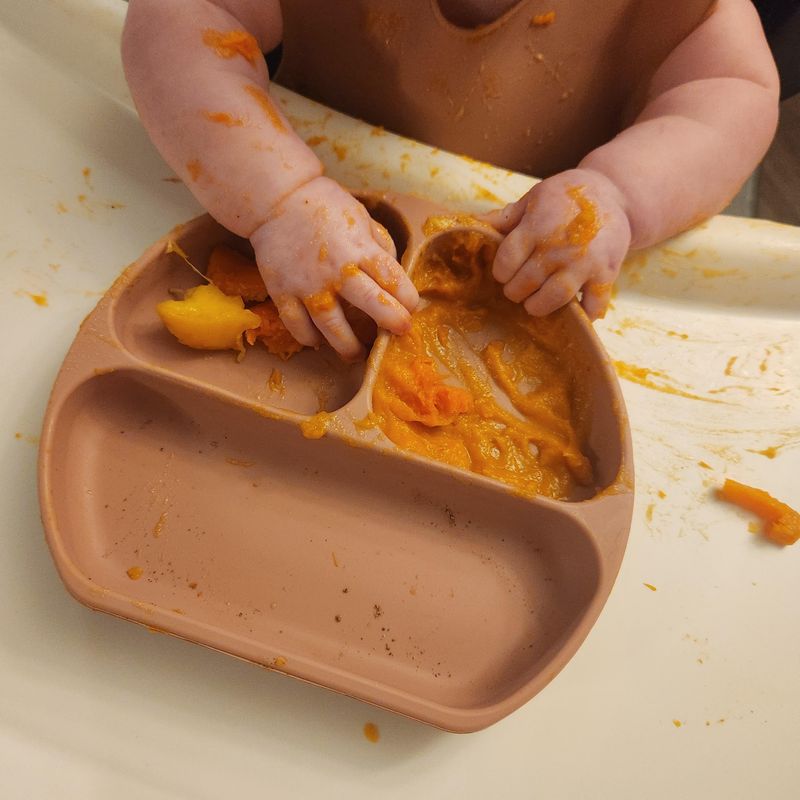
Bright, colorful, and naturally sweet, steamed carrots and sweet potatoes are a nutritious delight for little ones. These vegetables are rich in vitamins A and C, offering immune support while being gentle on the stomach. The soft texture of steamed carrots and sweet potatoes makes them easy for toddlers to chew and enjoy. They can be served mashed or cut into small pieces, depending on your child’s preference. Both options provide a sweet, appealing taste that can entice even the fussiest eaters. Did you know these veggies are often among the first solids introduced to babies?
10. Watermelon or Cucumber Slices
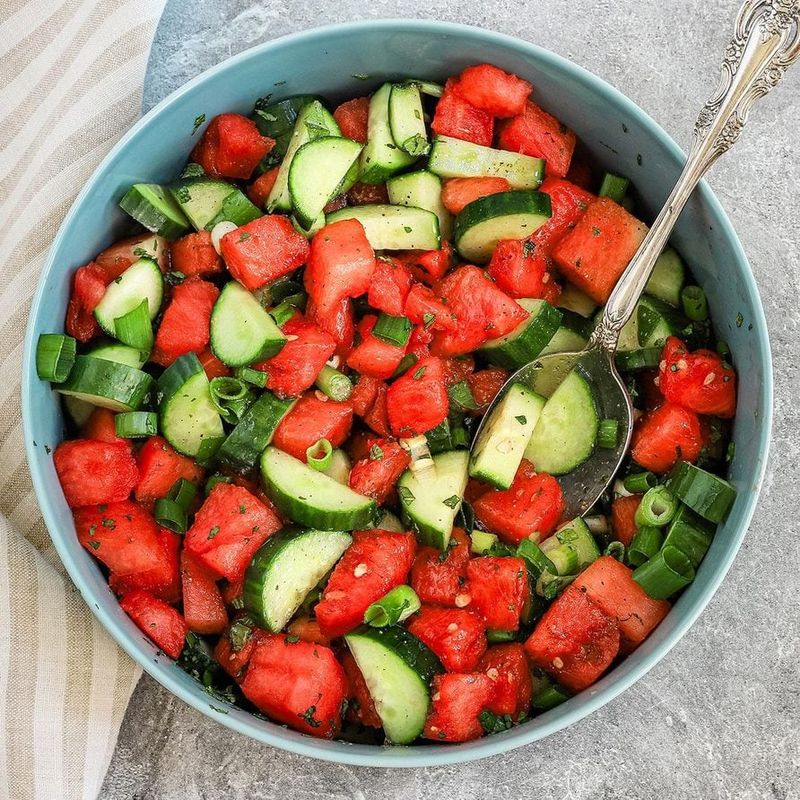
Refreshingly hydrating, watermelon and cucumber slices are perfect for keeping sick toddlers cool and hydrated. Their high water content makes them excellent choices when your child needs extra fluids but may resist drinking. Watermelon’s natural sweetness and cucumber’s crispness offer different textures and tastes, appealing to a young palate. These fruits can be served as finger foods or blended into a smoothie for a fun twist. They provide essential vitamins and antioxidants, supporting recovery. A quirky fact: cucumbers are technically fruits! Their ability to refresh and hydrate has made them popular in many cultures.
11. Yogurt (Plain or Low-Sugar)
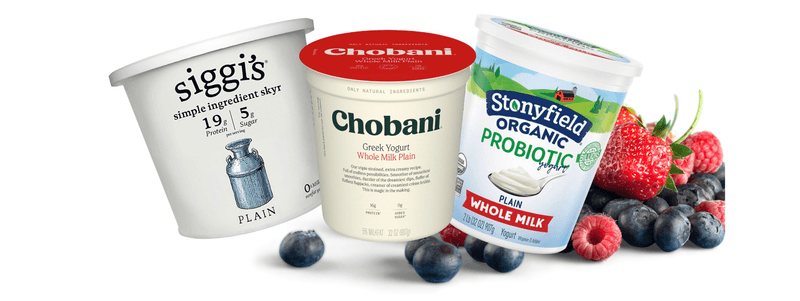
Creamy, cool, and filled with probiotics, yogurt is a tummy-friendly option for sick toddlers. Its smooth texture is easy to swallow, and the beneficial bacteria can aid digestion and support gut health. Choose plain or low-sugar varieties to avoid added sugars that may upset the stomach. Yogurt can be paired with fruits or granola, offering versatility and added nutrition. It’s often well-received by children due to its mild taste. Fun fact: yogurt has been consumed for thousands of years and is a staple in various cuisines worldwide, revered for its health benefits.
12. Smoothies (Mild & Simple)
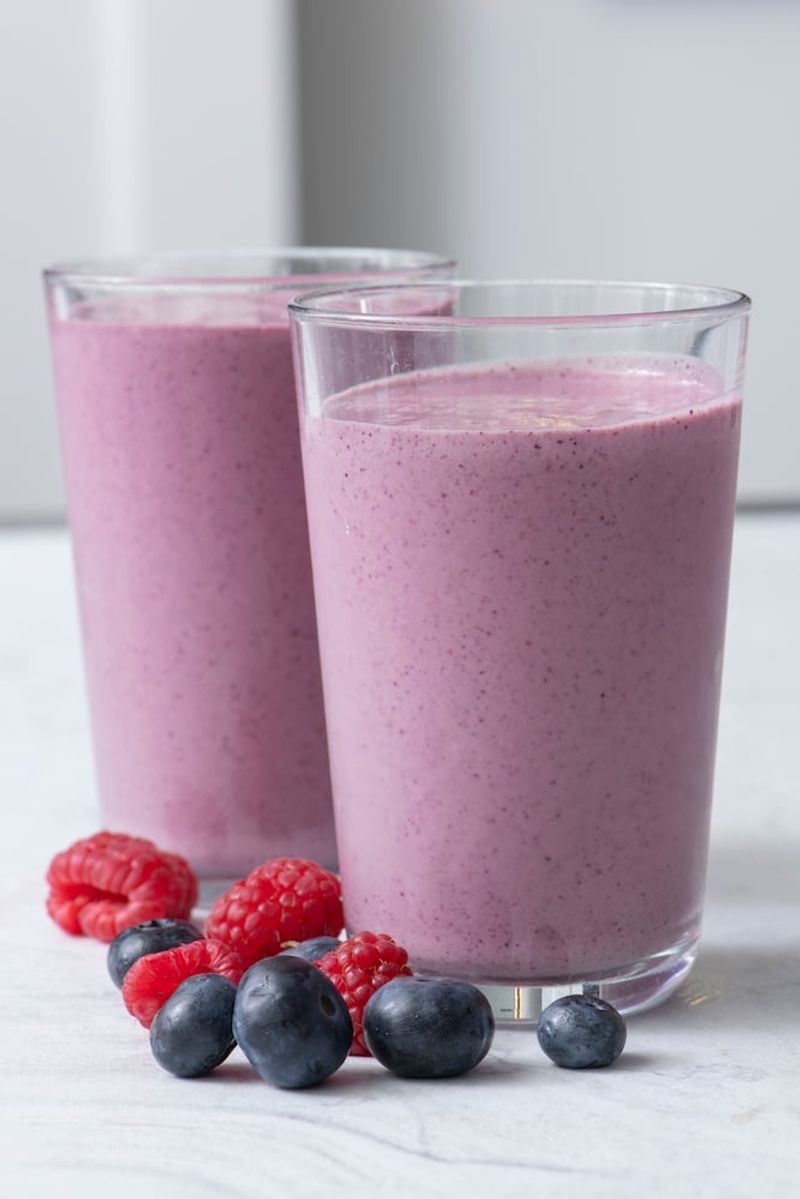
Smoothies offer a delightful way to combine nutrition and hydration in a single, enjoyable sip. By blending ingredients like banana, breast milk, oat milk, or yogurt, you can create a gentle, nutrient-rich drink that appeals to picky toddlers. The mild flavors can be adjusted to suit individual preferences, making smoothies a versatile option for sick days. These drinks are not only soothing but also provide essential vitamins and minerals. A fun tidbit: smoothies originated in the early 20th century and have since become a beloved, nutritious treat for all ages.
13. Popsicles (Homemade or Natural Juice-Based)
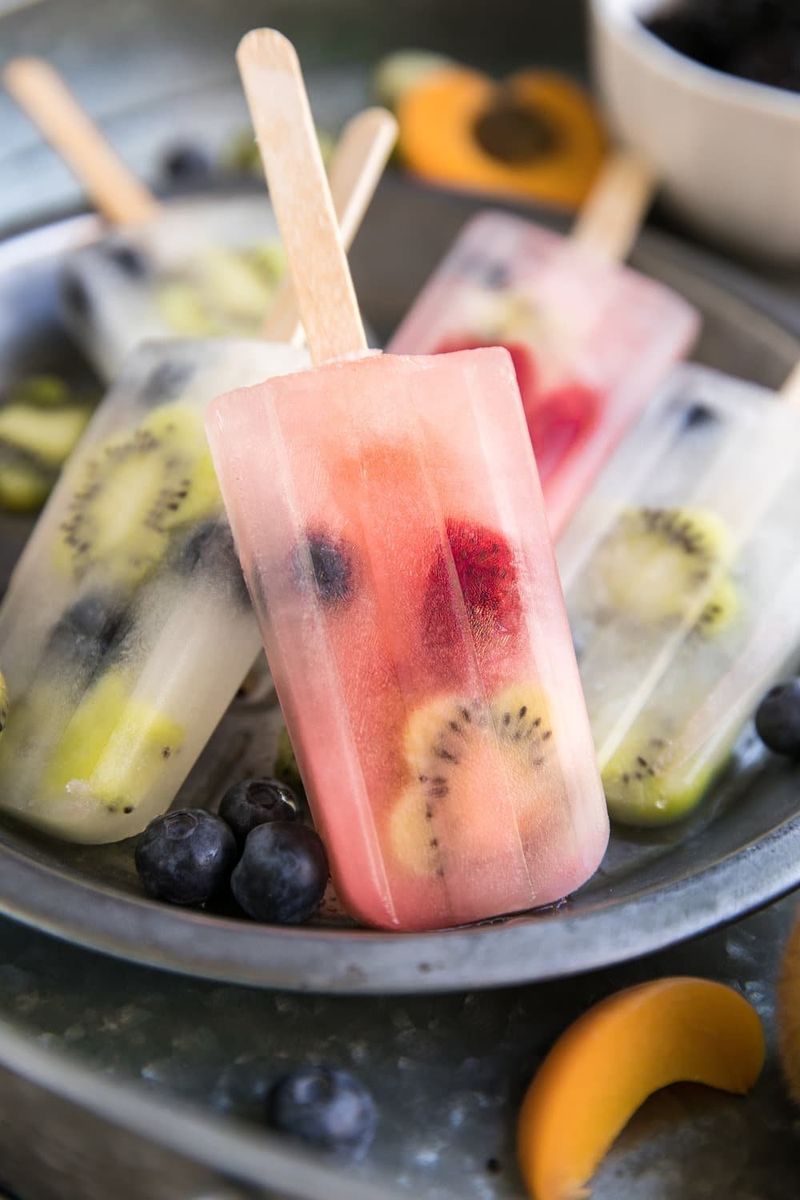
Popsicles can be a soothing treat for toddlers with sore throats or those needing hydration. Homemade or natural juice-based popsicles provide a gentle way to keep fluids up while offering a fun and tasty distraction from discomfort. They can be made with diluted juices or electrolyte drinks, depending on the child’s needs. Popsicles are not only delightful but also help soothe irritation and dryness in the throat. Fun fact: popsicles were accidentally invented by an 11-year-old in 1905, who left a stirring stick in a cup of soda overnight!
14. Soft-Cooked Pasta
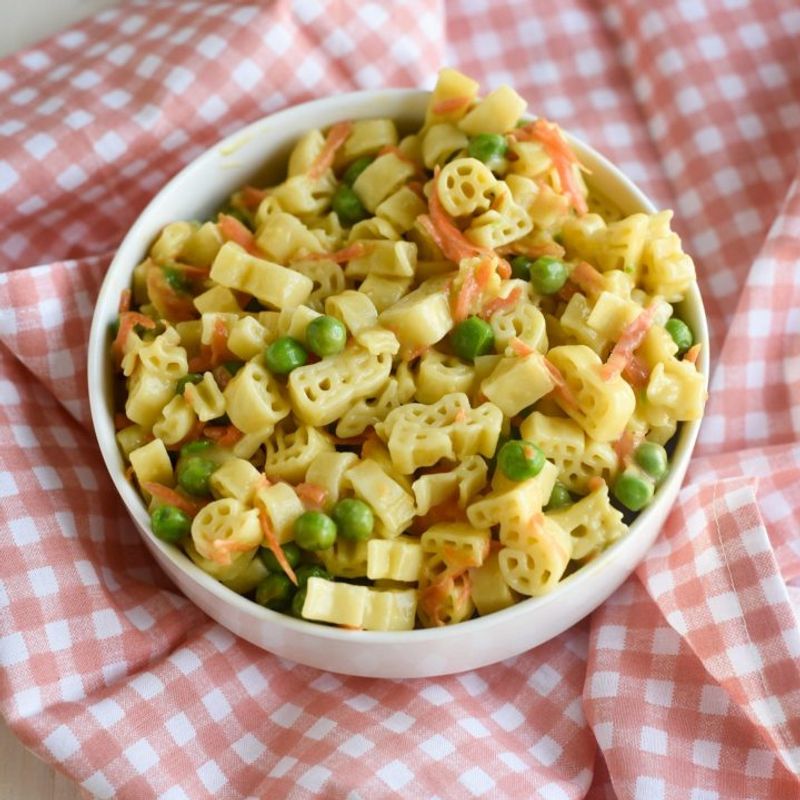
Pasta, when cooked to the perfect softness, becomes a comforting dish that’s gentle on the tummy. It’s an excellent source of carbohydrates, providing energy without challenging digestion. A simple preparation with olive oil or a touch of broth creates a light, tasty meal that toddlers often enjoy. Whether served plain or with a sprinkle of Parmesan, soft-cooked pasta is versatile and can be customized to suit dietary preferences. Did you know? Pasta has its roots in Italian cuisine and has evolved into a beloved staple in households worldwide.
15. Cottage Cheese or Ricotta
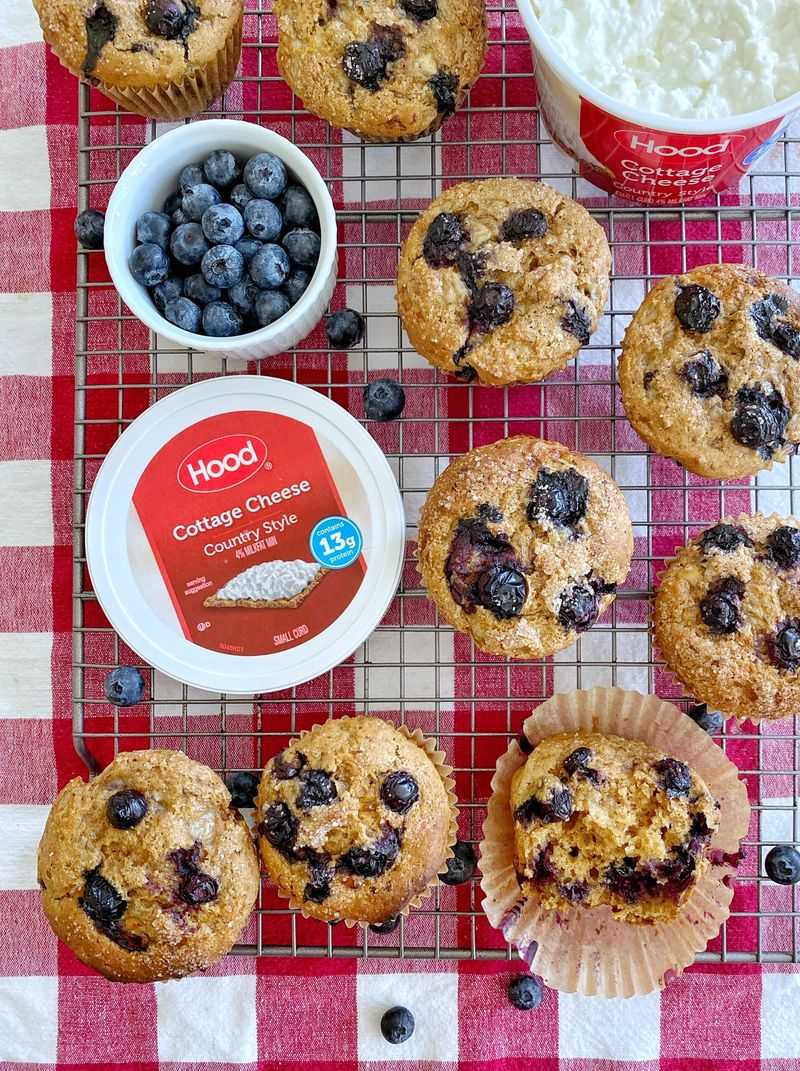
Creamy and mild, cottage cheese or ricotta provides a protein-rich option for recovering toddlers. Their soft, lumpy texture is easy to manage, offering essential nutrients like calcium and casein protein. These cheeses can be enjoyed alone, spread on soft bread, or accompanied by fruits for a sweet twist. Their neutral flavor makes them highly adaptable to various meals. Fun fact: ricotta cheese is made from whey, a byproduct of cheese production, and has been a part of traditional Italian cooking for centuries, known for its light, fresh taste.
16. Avocado (Mashed or Cubed)
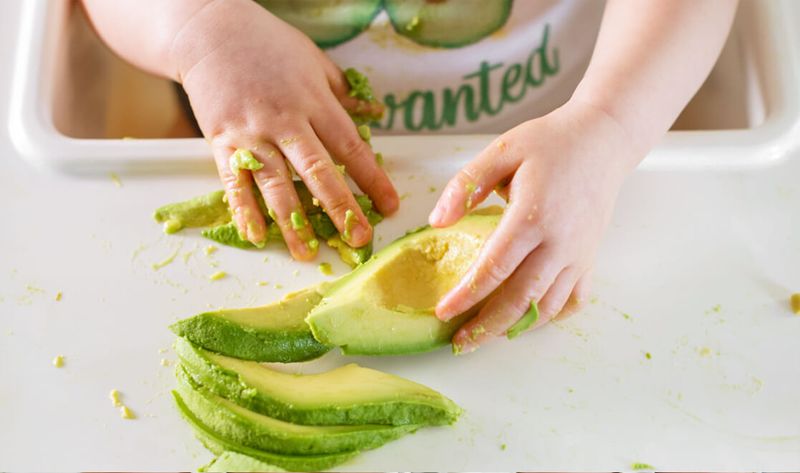
Avocado, with its rich, creamy texture and abundant healthy fats, is a wonderful food for sick toddlers. Mashed or cubed, it offers a soft, easy-to-eat option that can be served alone or spread on toast. Avocados are packed with essential nutrients like potassium and vitamins E and K, supporting overall health and recovery. Their mild, buttery flavor is typically well-accepted by young palates. Fun tidbit: avocados are sometimes called “alligator pears” due to their shape and bumpy skin, and they have been cultivated for thousands of years in Central America.
17. Rice Porridge or Congee
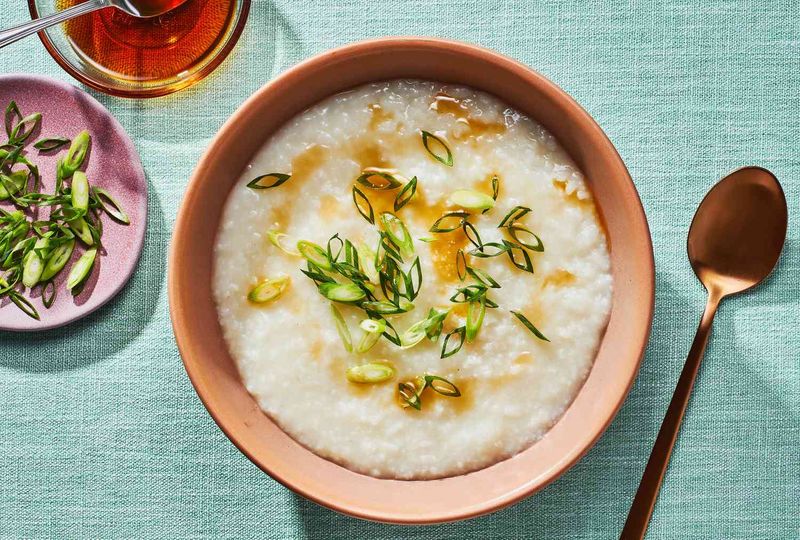
Rice porridge, or congee, is a nourishing dish cherished in many cultures for its soothing qualities. Its ultra-soft texture makes it easy to digest, offering warmth and comfort to little ones. Often prepared with broth and a touch of seasoning, congee can be customized with ingredients like shredded chicken or vegetables. It provides hydration and energy, making it an excellent choice for sick toddlers. Fun fact: congee is a staple in Asian cuisine and varies widely in preparation, reflecting regional tastes and traditions while maintaining its role as a healing food.
18. Boiled or Poached Chicken (Shredded)
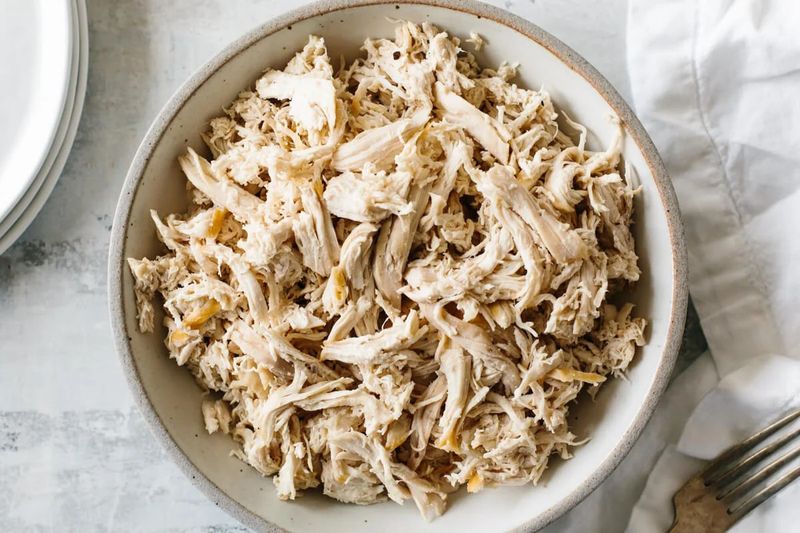
Tender and mild, boiled or poached chicken is a nutritious source of protein for recovering toddlers. Shredded into small pieces, it’s easy to chew and digest, providing essential nutrients like iron and vitamins. This simple preparation keeps the chicken soft and juicy, often appealing to young taste buds. It pairs well with rice, pasta, or vegetables, creating a balanced meal. Did you know boiled chicken is often recommended by nutritionists for its simplicity and nutrient density, making it a go-to food during illness recovery?
19. Pumpkin or Butternut Squash Puree
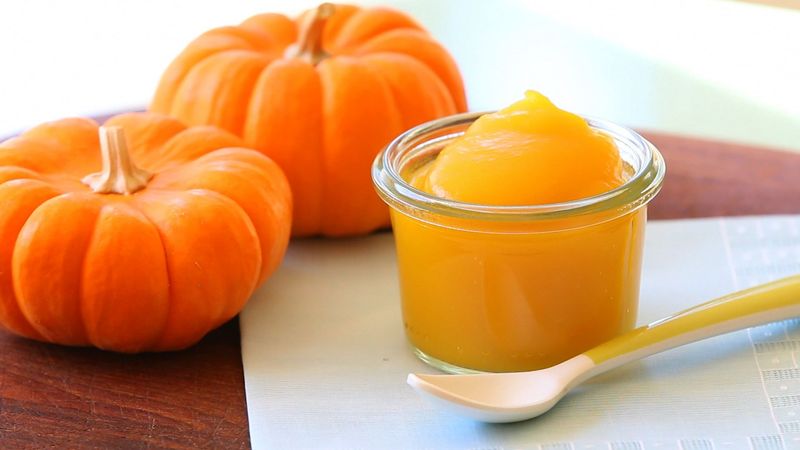
Vibrant, sweet, and full of vitamins, pumpkin or butternut squash puree is a delightful option for sick toddlers. Its smooth, velvety texture makes it easy to swallow, while the natural sweetness often appeals to little ones. Rich in vitamins A and C, this puree supports immune health and recovery. It can be served on its own or mixed with other foods like rice or pasta. Fun fact: pumpkins have been cultivated for thousands of years, originally in Central America, and remain a symbol of fall festivities worldwide.
20. Breast Milk or Formula (If Still Nursing)

For toddlers still nursing, breast milk or formula remains a crucial source of hydration and nutrition, especially during illness. Rich in antibodies, breast milk supports the immune system and provides comfort through its familiar taste and warmth. Formula, when chosen appropriately, offers similar benefits and ensures nutritional needs are met. This liquid nourishment is crucial when solid foods are less appealing or tolerated. Did you know breast milk composition changes according to the child’s needs, offering tailored nutrition at different stages of growth? It’s a fascinating aspect of human biology.
